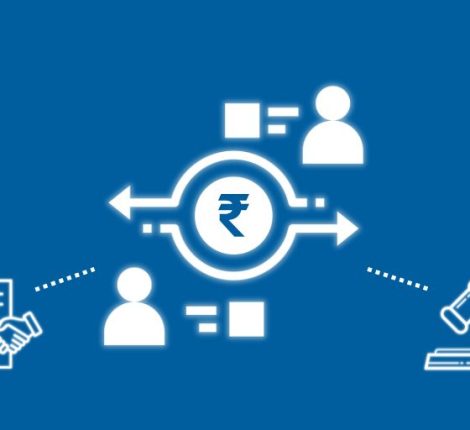Employment Law Newsletter – The Rise of Gig Economy in India: Opportunities and Challenges for Gig Workers : July 2024
Introduction
When ordering food online, we frequently see the delivery executives being referred to as “Delivery Partners” by the online food delivery apps. Many of these workers are classified as independent contractors rather than traditional employees by their employers. There have been notable grievances in the past, including the classification of these workers as “Gig Workers” and concerns over food delivery apps employing advanced algorithms to exert significant control over their operations.
Issues faced by the Gig Workers
The gig economy in India has triggered a wave of legal challenges, primarily on classifying gig workers as independent contractors rather than regular employees. This classification often deprives gig workers of essential labour protections, such as minimum wage, statutory bonuses, employee benefits, and overtime pay. As a result, various legislation is being introduced by the regulators to grapple with the evolving landscape of labour. It is evident that comprehensive legal reform was urgently required to address issues related to discrimination, access to social safety nets, enforcement of existing labour laws, and the ambiguous rights and responsibilities of gig workers in an ever-changing employment landscape.
In the case of The Indian Federation of App-Based Transport Workers (IFAT) v Union of India, a step was taken by the Indian Federation of App-based Trasport Workers by a PIL in the Supreme Court to include these “Gig Workers” as “Unorganised Workers” under the Unorganised Workers Social Welfare Security Act, 2008. It was also argued that the failure to recognize these “Delivery Partners” as “Unorganised Workers” violates their rights under Article 21 of the Constitution of India.
Gig Worker and their current Legal Scenario
-
Code of Social Security, 2020
The newly introduced four labour codes in India have created a significant disparity when it comes to addressing the rights and status of Gig workers. The Social Security Code of 2020 (“Code”) is the only one among them that acknowledges gig workers, categorizing them as unorganized workers. As per the Code, a gig worker is a person who participates in a work arrangement and earns from such activities outside of a traditional employer-employee relationship.
The Code mandates the gig worker to be registered on an online portal to avail benefit under the Code which shall be notified by the Central Government.
Additionally, registration under the Code is subject to the following conditions:
- The individual must be at least sixteen years old but not yet sixty years old.
- The individual should have worked for a minimum of ninety days over the past twelve months.
- The individual has to provide a self-declaration electronically or by other means, using a prescribed format with specified information as determined by the Central Government.
- Every eligible gig worker must apply for registration, including submission of necessary documents such as an Aadhaar number, using the prescribed form.
-
Rajasthan Platform Based Gig Workers (Registration and Welfare) Act, 2023
While the Code acknowledges gig and platform workers and aims to expand benefits to them at the Central level, the state of Rajasthan has enacted the Rajasthan Platform Based Gig Workers (Registration and Welfare) Act, 2023 (“Act”) to mitigate the challenges currently faced by gig workers.
The Act mandates that gig workers register for social security benefits under the oversight of the Rajasthan Platform-Based Gig Workers Welfare Board. The gig workers once registered will receive a unique ID for proper record-keeping, and the aggregators (digital intermediaries connecting buyers and sellers of goods or services) responsible for the same will contribute fees to the welfare fund based on transactions involving the gig workers to fund social security schemes.
The Act ensures that gig workers have the opportunity to voice their grievances and participate in decisions concerning their welfare through direct representation on the board. Non-compliance by the aggregators, such as failure to pay the welfare fee, will result in penalties ranging from Rs. 5 lakhs to Rs. 50 lakhs, aimed at ensuring adherence to the Act. Additionally, Rs. 200 crore funds have been established by the Act to further support the welfare and development of gig workers in Rajasthan.
-
Karnataka Platform-based Gig Workers (Social Security and Welfare) Bill, 2024
On June 29, 2024, the Karnataka government published the draft of the Karnataka Platform-based Gig Workers (Social Security and Welfare) Bill, 2024 (“Bill”) which aims to
oversee the social security and welfare of gig workers in Karnataka and is scheduled to be placed for consideration during the upcoming monsoon session of the Karnataka Assembly.
The Bill mandates that both aggregators and gig workers register with the Karnataka Platform-Based Gig Workers Welfare Board. This registration requirement ensures that all parties involved in the gig economy operate within a regulated framework, promoting accountability and transparency. The Bill also requires contracts with the gig workers to be written in a language that gig workers understand and specifies that changes to contracts must be communicated with sufficient notice. Additionally, termination of contracts is allowed only under predefined grounds and with advance notice, providing gig workers with stability and security in their engagements.
Transparency measures have also been introduced by the Bill. Aggregators are now obligated to disclose essential information to gig workers upon request. This includes details about how work is assigned, assessments of gig workers’ performance, the functioning of rating systems, and the handling of personal data. Financially, the bill proposes the establishment of the Karnataka Gig Worker’s Social Security and Welfare Fund. This fund, financed through a welfare fee imposed on aggregators based on gig workers’ earnings or aggregator turnover, aims to provide financial support and security to the registered gig workers.
Additionally, aggregators with more than 50 gig workers must establish Internal Dispute Resolution Committees where gig workers can raise concerns regarding entitlements, payments, or other work-related issues. Alternatively, gig workers can seek resolution through mechanisms provided under existing labour laws, ensuring their rights are upheld and disputes are effectively addressed.
Conclusion
The rise of India’s gig economy and the introduction of legislative measures like the Code of Social Security, 2020, alongside state-specific acts such as the Rajasthan Platform-Based Gig Workers (Registration and Welfare) Act, 2023, and the Karnataka Platform-based Gig Workers (Social Security and Welfare) Bill, 2024, represent pivotal steps towards addressing issues faced by the gig workers in India. These laws aim to provide essential protections and establish mechanisms for grievance redressal and transparency in work arrangements.
However, the effective enforcement and continued refinement of these regulations are essential to safeguarding gig workers’ rights, fostering a fair and equitable gig economy, and realizing its full potential as a sustainable and inclusive sector of India’s workforce.





